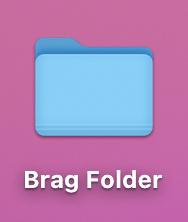If "make more money" is on your to-do list for 2023, you're not alone. Inflation is allegedly slowing down but most of us aren't really seeing relief in the still-high prices for basic necessities like groceries and rent. So negotiating for a raise or a higher salary at a new job could make a big difference in your bottom line in the new year.

To get some salary negotiation pro tips, I talked with one of my favorite finance creators Tori Dunlap. She's the host of the Financial Feminist podcast and the author of the new book Financial Feminist: Overcome the Patriarchy's Bullsh*t to Master Your Money and Build a Life You Love.
Whether you're planning to look for a new job or ask for a raise in your current role, she's got tons of solid advice. Here's what we talked about:
1. Whether you're looking for a new job or asking for a raise, Tori says your first step should be doing market research so you know how to price your labor. And the best data will come from talking to people in your network.
2. Tori says one reason many people get nervous about negotiations is that we think about them as conflicts and feel powerless, but it can be really helpful to reframe them as collaborations.

3. Let's say you're interviewing for a new job, but the salary range isn't in the listing (rude!). The most important thing you should remember is never, ever, ever give the company a number first.

4. But what about those annoying job applications that require you to enter an expected salary? Tori says you don't have to fill in an actual number there.

5. And absolutely don't tell a recruiter how much you're currently making.

6. If an employer makes you an offer that you feel is too low, Tori suggests countering with what she calls a gratitude sandwich.
7. If they get weird when you want to talk about money, that shows how they would treat you down the road if you accepted a job with them.

8. Don't forget you can negotiate for more benefits, too.

9. You can also negotiate for a title that will set you up for higher-earning roles in the future.

10. Keep track of your successes all year round so it's easier to ask for your next raise or write your next resume.

11. Let's say you're building a case that you deserve a raise. Tori has a method for laying out your achievements that only takes two sheets of paper.
12. The three best times to negotiate your salary are before starting a new job, during your annual review, and if you discover you're being underpaid.

13. Let's say you find out you're making waaay less than your colleagues and you're simmering with rage. Tori says to take some time to cool off before you have a conversation with your boss.

14. With everything being so dang expensive, you might be wondering how inflation fits into salary negotiations in 2023. It can definitely be a piece of the puzzle but it shouldn't be your main argument.

15. If you do a lot of "invisible work" (think: party planning, taking notes, etc.), don't be afraid to bring it into the conversation.
16. If a raise isn't on the table right now, you can ask what it would take for you to get there.

17. But if it's clear that there's just no way you're going to get paid what you're worth, it may be time to start looking for a new job.

18. Finally, remember that negotiation is a skill that gets better and more comfortable with practice. So practice it!

